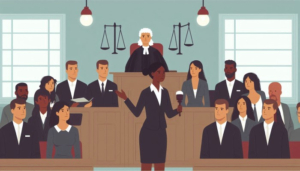
Reggaeton, a popular genre known for its infectious beats and catchy tunes, has been at the center of several lawsuits that have rocked the music industry. In this in-depth article, we will delve into the world of the reggaeton lawsuit, exploring its origins, key legal battles, and the lasting impact on the genre.
Understanding Reggaeton
Reggaeton is a music genre that originated in Puerto Rico in the late 1990s. It blends elements of Latin American and Caribbean music, primarily dancehall and hip hop, creating a unique and captivating sound. Reggaeton quickly gained popularity worldwide, becoming a cultural phenomenon.
The Rise of Reggaeton Lawsuits
The Copyright Conundrum
Reggaeton’s rapid rise to fame brought with it a wave of legal challenges. One of the primary issues was copyright infringement. Many reggaeton tracks incorporated samples from other songs without proper licensing, leading to numerous lawsuits.
Landmark Cases
Daddy Yankee vs. DJ Playero
One of the earliest and most notable cases was Daddy Yankee’s legal battle with DJ Playero. The dispute revolved around the unauthorized use of DJ Playero’s beats in Daddy Yankee’s hit song “Gasolina.” This case set a precedent for copyright enforcement in the reggaeton industry.
Wisin & Yandel’s Plagiarism Scandal
In another high-profile case, reggaeton duo Wisin & Yandel faced allegations of plagiarism for their song “Rakata.” The lawsuit alleged that the duo had copied the melody and lyrics from an obscure artist. This case underscored the importance of originality in reggaeton music.
The Impact on Creativity
These lawsuits had a profound impact on the reggaeton scene. Artists and producers became more cautious about sampling and borrowing elements from other tracks, fearing legal repercussions. While this protected intellectual property rights, it also led to a shift in the genre’s creative landscape.
The Role of Regulatory Bodies
ASCAP and BMI
Reggaeton’s legal battles also brought performing rights organizations like ASCAP (American Society of Composers, Authors, and Publishers) and BMI (Broadcast Music, Inc.) into the spotlight. These organizations work to ensure that artists receive fair compensation for their work, including royalties from radio airplay and public performances.
Music Licensing Agencies
To navigate the complex web of music licensing, many reggaeton artists and producers turned to music licensing agencies. These agencies assist in obtaining the necessary permissions and licenses to avoid legal disputes.
The Evolving Landscape
Changing Business Models
As reggaeton continued to evolve, so did the business models within the industry. Streaming platforms like Spotify and Apple Music became dominant, reshaping how artists earn revenue. This shift necessitated a reevaluation of licensing and royalty agreements.
International Reach
Reggaeton’s global appeal led to international collaborations, but these partnerships also raised legal questions about jurisdiction and intellectual property rights. Artists had to adapt to the complexities of international copyright laws.
FAQs
What is the reggaeton lawsuit about?
The reggaeton lawsuit encompasses various legal battles within the reggaeton music genre, primarily focusing on copyright infringement, plagiarism, and intellectual property rights.
How did copyright infringement impact reggaeton?
Copyright infringement lawsuits forced reggaeton artists and producers to be more cautious about sampling and borrowing elements from other tracks, leading to a shift in the genre’s creative landscape.
What were some landmark reggaeton lawsuit cases?
Notable cases include Daddy Yankee’s legal battle with DJ Playero over “Gasolina” and allegations of plagiarism against Wisin & Yandel for “Rakata.”
What role did ASCAP and BMI play in reggaeton?
ASCAP and BMI played a crucial role in ensuring fair compensation for reggaeton artists by handling royalties from radio airplay and public performances.
How did streaming platforms impact the reggaeton industry?
The rise of streaming platforms like Spotify and Apple Music reshaped how reggaeton artists earned revenue, prompting a reevaluation of licensing and royalty agreements.
What challenges did international collaborations pose for reggaeton artists?
International collaborations in reggaeton raised legal questions about jurisdiction and intellectual property rights, requiring artists to navigate international copyright laws.
Conclusion
The reggaeton lawsuit saga has significantly shaped the legal landscape of the music industry, emphasizing the importance of intellectual property rights and originality. As the genre continues to evolve and reach new heights, artists and producers must remain vigilant in navigating the complex legal terrain. By learning from past lawsuits and embracing fair licensing practices, reggaeton can thrive while respecting the creative rights of all involved parties.






